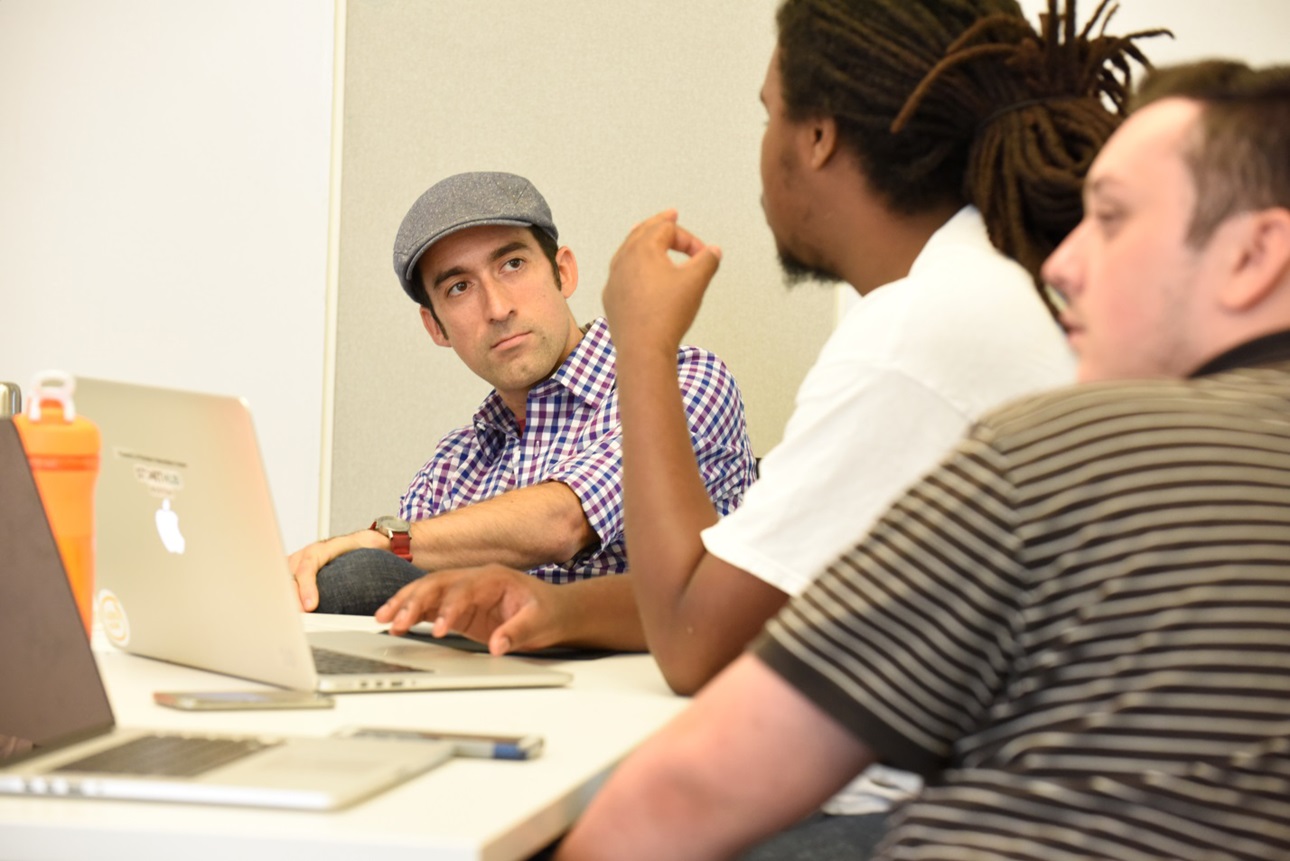David Delmar has a conviction: that technology can change lives—not through specific apps or tools, but through its potential as a real meritocracy. A graphic designer and developer who made his career with PayPal before leaving the corporate scene, Delmar knows that successful software work requires grit and resilience. Having seen those characteristics abounding in young people coming up in tough neighborhoods, he decided to put the two together. He formed the nonprofit organization Resilient Coders. Partnering with organizations that work with at-risk and low-income youth, he mounts “hackathons,” code-learning events that are open to all. Through these events, his team recruits students—resilient 18- to 28-year-olds from Boston neighborhoods—for seven-week Resilient Coders bootcamps.
Resilient Coders taught its very first class in May of 2014, at the Department of Youth Services facility in Roslindale, and officially incorporated in September of 2014. The Boston Foundation has made grants totaling $85,000 through our Jobs and Economic Development impact area, with the most recent grant of $50,000 made in December of 2016.
Through the bootcamps, students attend class daily and receive a stipend every two weeks, which allows them to pursue the work essentially full-time. Getting paid to code is an eye-opener. “Programming is my ticket up and outta here,” says Geo, a student recently out of high school. “If I can do it, I can have a decent life.”
It isn’t a walk in the park though. Students must complete a certain amount of “maker time,” and must earn badges in HTML, CSS and Javascript to complete the course. The highest performing students are invited to a paid apprenticeship with Resilient Lab, the business arm of Resilient Coders, doing real work for real clients, learning more development as well as other professional skills at the same time.
Another student, Jahi Spaloss, comments, “This definitely isn’t a class like you think of a ‘class’—it’s not like being at school at all. You’re learning to be more independent, and to help yourself as well as to code. They help a lot with business and job search skills, for example.”
His classmate Dunia Goncalves agrees: “This is an environment where you can feel comfortable not knowing. If you’re willing to learn, you don’t have to have a background in languages or code. You just have to have the interest. And grit, like they said. It’s so cool. I am so happy to be here.”
Now in its third year, Resilient Coders has already seen alumni take big next steps—as a full stack web developer at the Boston Globe, an intern at The Grommet, a technical account specialist at HubLogix, participants in the Startup Institute, and a freelance graphic and UX designer, to name just a few. Current students have high hopes and strong ambitions too.



